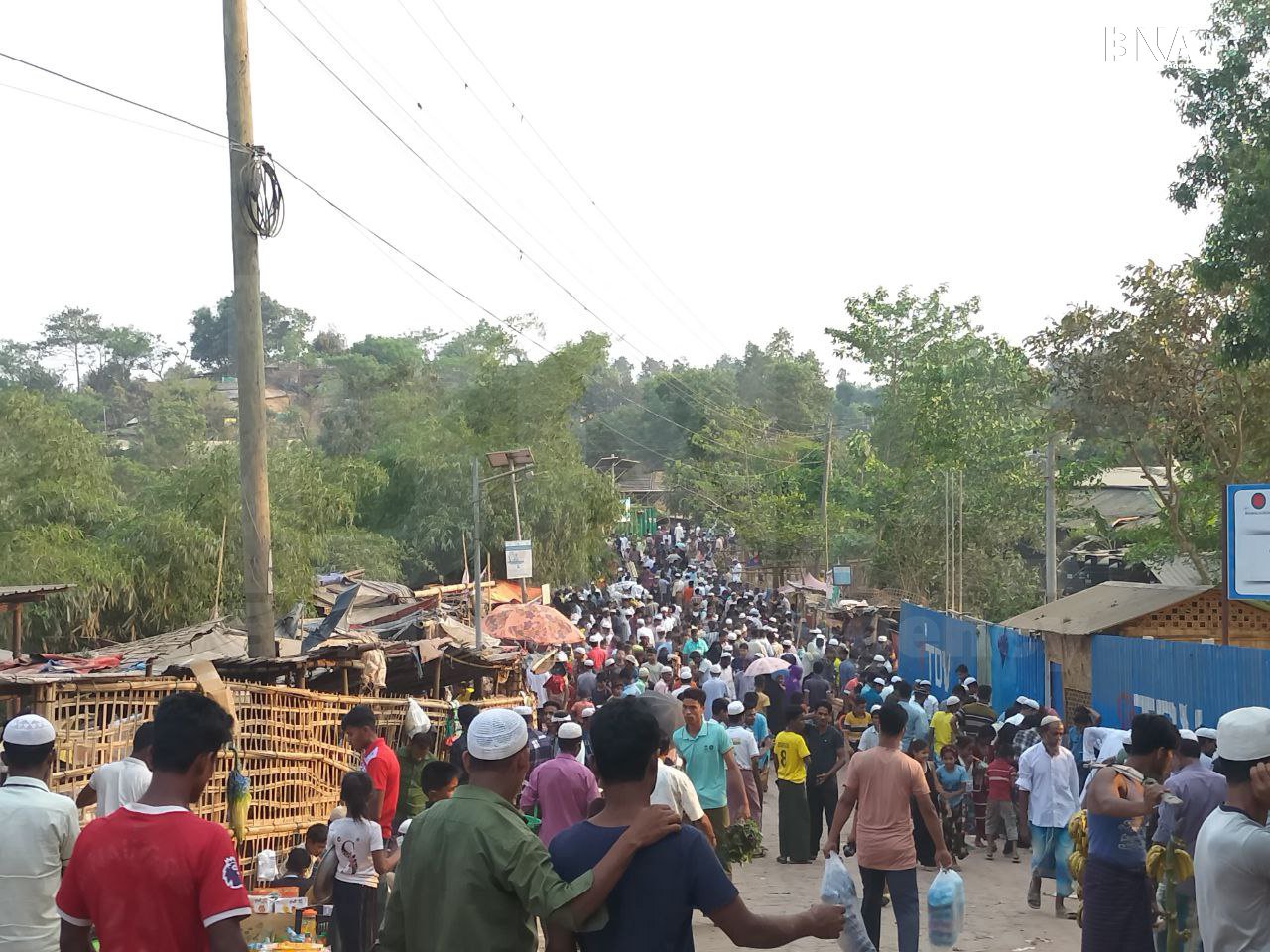In a significant development towards addressing the Rohingya crisis, the United Nations General Assembly (UNGA) has adopted a resolution outlining the scope, modalities, format, and organization of a high-level conference on the situation of Rohingya Muslims and other minorities in Myanmar.
The resolution, sponsored by Malaysia and Finland, was passed on Tuesday with overwhelming support from the international community.
During the open debate session, Bangladesh’s Permanent Representative to the UN, Ambassador Md Salahuddin Noman Choudhury, played a crucial role in the adoption of the resolution.
Bangladesh, which has been at the forefront of the Rohingya crisis since the mass influx of refugees in 2017, expressed its firm stance on the resolution.
Ambassador Choudhury proposed a vote on the resolution after Russia introduced several amendments that Bangladesh did not accept. Following this, the President of the General Assembly convened the vote, and the resolution was successfully adopted with 141 votes in favor. Notably, there was no opposition to the resolution, although 10 countries abstained from voting.
The adoption of this resolution marks a significant milestone in the ongoing efforts to find a lasting solution to the Rohingya crisis. The resolution sets the stage for a high-level conference dedicated to addressing the plight of Rohingya refugees and other persecuted minorities in Myanmar.
This comes at a critical moment, as Bangladesh is planning to organize a special summit on the Rohingya crisis in New York in September.
For years, the Rohingya people have suffered severe persecution in Myanmar, leading to mass displacement and a protracted humanitarian crisis. Over one million Rohingya refugees currently reside in Bangladesh, particularly in Cox’s Bazar, where they face challenging conditions in refugee camps.
The international community has repeatedly called on Myanmar to ensure the safe, voluntary, and dignified repatriation of the Rohingya, but progress has been slow.
The resolution’s adoption reflects growing global consensus on the need for urgent action. The role of Malaysia and Finland as sponsors highlights the international dimension of the crisis, with countries outside the immediate region stepping up to push for a resolution.
The fact that there was no opposition vote underscores the widespread recognition of the Rohingya issue as a humanitarian priority.
The upcoming high-level conference will likely provide a platform for renewed diplomatic efforts, discussions on accountability for human rights violations, and strategies for sustainable repatriation and integration.
Bangladesh, as a host country to the largest Rohingya refugee population, has been advocating for increased international support and engagement in resolving the crisis.
With the planned Rohingya summit in New York this September, Dhaka aims to bring together key stakeholders, including UN agencies, donor countries, and regional partners, to develop a concrete action plan. The adoption of this resolution is expected to add further momentum to these efforts.
The UNGA’s decision to adopt this resolution is a step forward in addressing the long-standing Rohingya crisis. As the international community prepares for the upcoming conference, all eyes will be on how global leaders, humanitarian organizations, and regional actors collaborate to ensure justice, human rights, and a sustainable solution for the Rohingya people.
The next few months will be crucial in shaping the future of this crisis, with hopes that the high-level conference and the planned Rohingya summit will pave the way for meaningful progress, stronger international commitments, and lasting peace for the Rohingya and other persecuted minorities in Myanmar.






